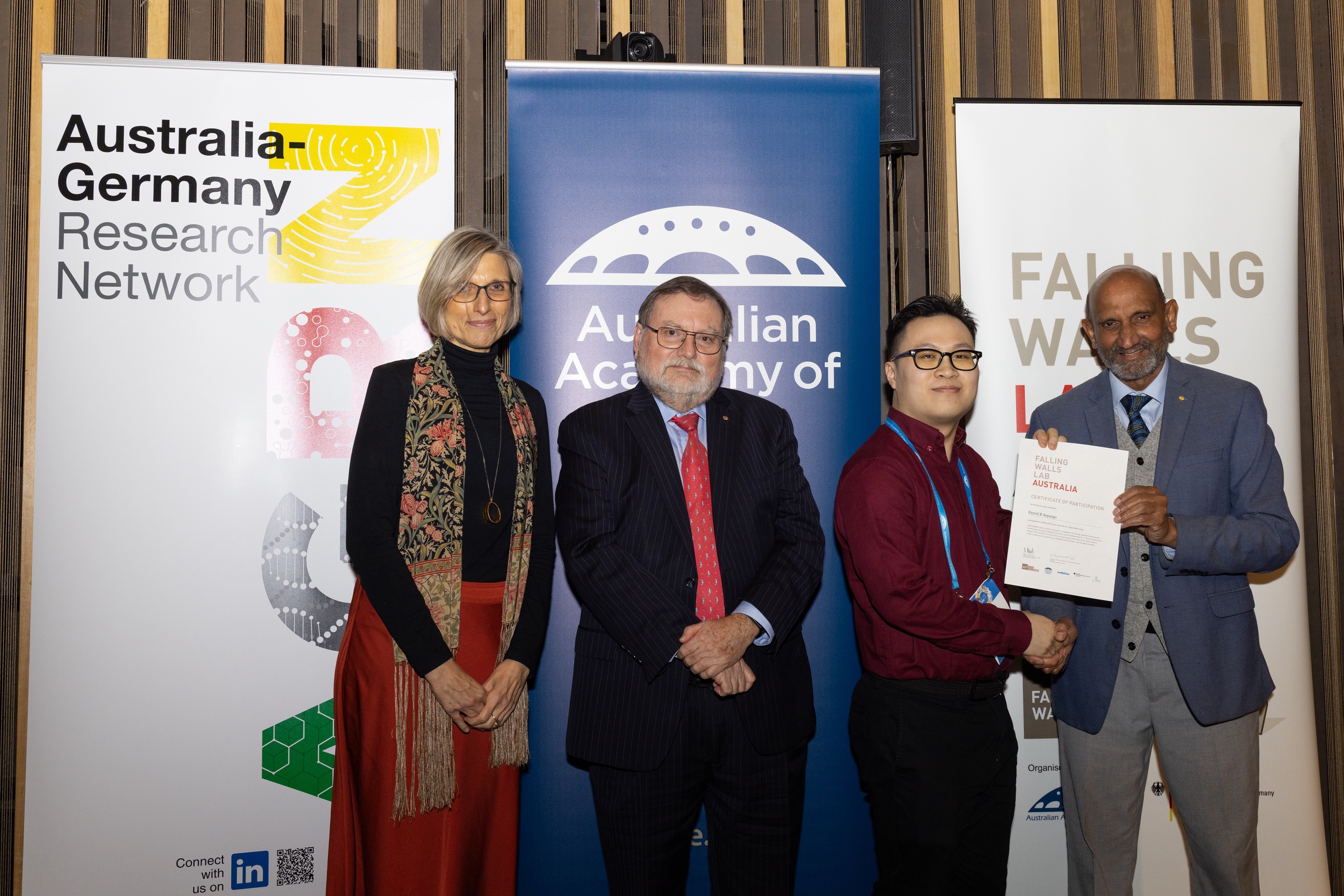 Hunter Johnson, a PhD student in the Simpson Lab at the University of Melbourne’s School of Physics, appeared on Melbourne’s RRR Einstein A Go-Go Radio Show to share insights into the fascinating world of quantum sensing using lab-grown diamonds.
Hunter Johnson, a PhD student in the Simpson Lab at the University of Melbourne’s School of Physics, appeared on Melbourne’s RRR Einstein A Go-Go Radio Show to share insights into the fascinating world of quantum sensing using lab-grown diamonds.
Hunter’s research focuses on nitrogen-vacancy (NV) centres – tiny, fluorescent defects in the diamond’s crystal structure – which act as ultra-sensitive nanoscale sensors. When illuminated with green light, these centres fluoresce and allow researchers in the David Simpson’s Quantum Sensing Lab to detect extremely small electric and magnetic fields. Because NV centres flicker on and off in response to voltages and magnetic fields, they offer a powerful, non-invasive way to monitor neural activity and detect magnetic materials in biological systems. Hunter also discusses how lab-grown diamonds are chemically engineered layer by layer, allowing researchers to scale up production and tailor the crystals for specific sensing applications.
“We’re essentially turning diamonds into tiny, high-precision tools for biology,” says Hunter. “It’s a beautiful intersection of physics, materials science, and medicine.”
Quantum sensors based on NV centres are more than just a scientific curiosity, they represent a potential leap forward in how we study and understand the human body. These sensors can detect the electrical signatures from neurons with extreme precision, opening the door to new approaches in brain imaging, drug discovery, and real-time monitoring of biological processes. Unlike traditional technologies, they work at room temperature, are scalable, and can be integrated into compact devices. This makes them ideal for future biomedical tools that are both powerful and practical.
Listen to the full interview here: Programs: Einstein A Go-Go – 6 July 2025, Einstein A Go-Go — Triple R 102.7FM, Melbourne Independent Radio
Banner image: A diamond fluroescing. Credit: Quantum Sensing Lab, University of Melbourne.

